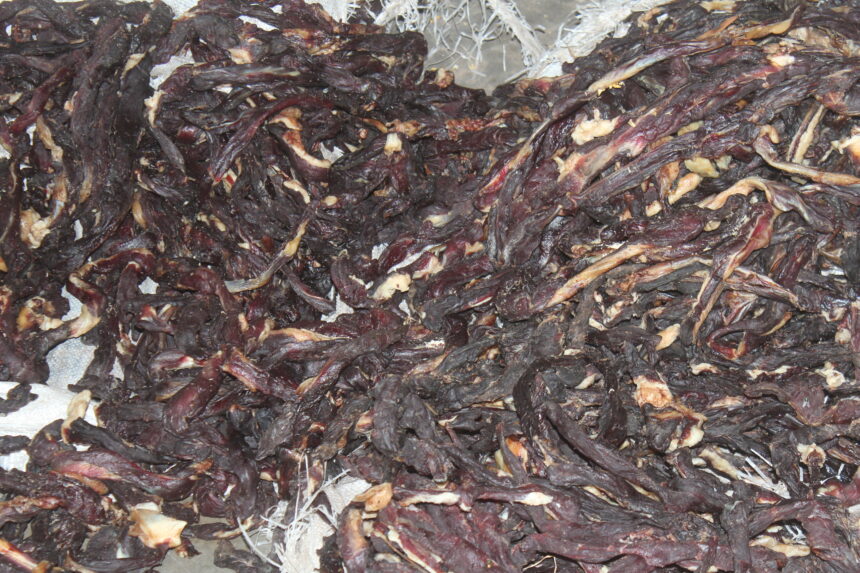The movement of dried meat of cloven-hoofed animals (such as cattle, sheep, goats, pigs and certain wild animals) is now allowed into the Foot-and-Mouth Disease (FMD) free zone without a veterinary permit, provided that all portions of the meat are cooked and free of blood.
This was announced by the Ministry of Agriculture, Fisheries, Water and Land Reform (MAWLR) as part of its new guidelines for moving animal products into Namibia’s FMD-free zone.
In a press release, the Directorate of Veterinary Services (DVS) advised the public to boil the meat, saying that raw meat not produced under Commodity-Based Trade (CBT) conditions is not allowed, as the FMD virus can survive in tissues like lymph nodes and bone marrow, even after freezing.
“FMD is one of the diseases for which the World Organisation for Animal Health (WOAH) recognises disease-free zones. This requires strict controls, including veterinary fences, gates, and designated entry and exit points,” it stressed.
Raw meat from export-approved abattoirs may enter the FMD-free zone only if it meets CBT conditions and is accompanied by a veterinary health certificate confirming compliance with the WOAH Terrestrial Animal Health Code.
“Products from non-cloven-hoofed animals (such as chicken, donkeys, horses, and fish) and plants or plant products free of cloven-hoofed animal manure may also be moved into the FMD-free zone without restriction. However, unregistered animal feeds for cloven-hoofed animals require a veterinary permit,” the release stated.
The ministry urged the public to consult their nearest state veterinary office, veterinary gate, or designated entry/exit point for detailed guidelines on what may or may not be moved into the FMD-free zone.
-Nampa


